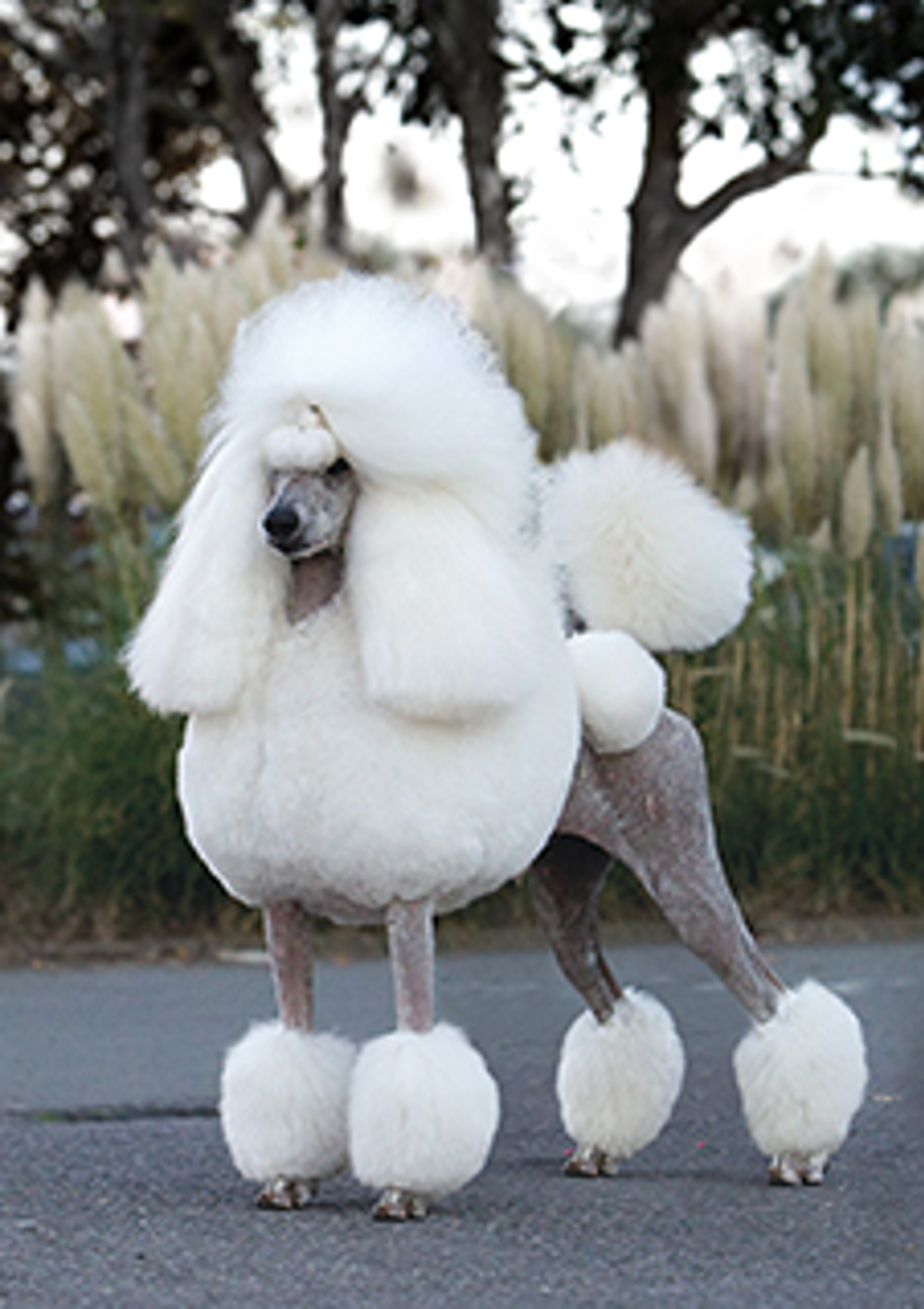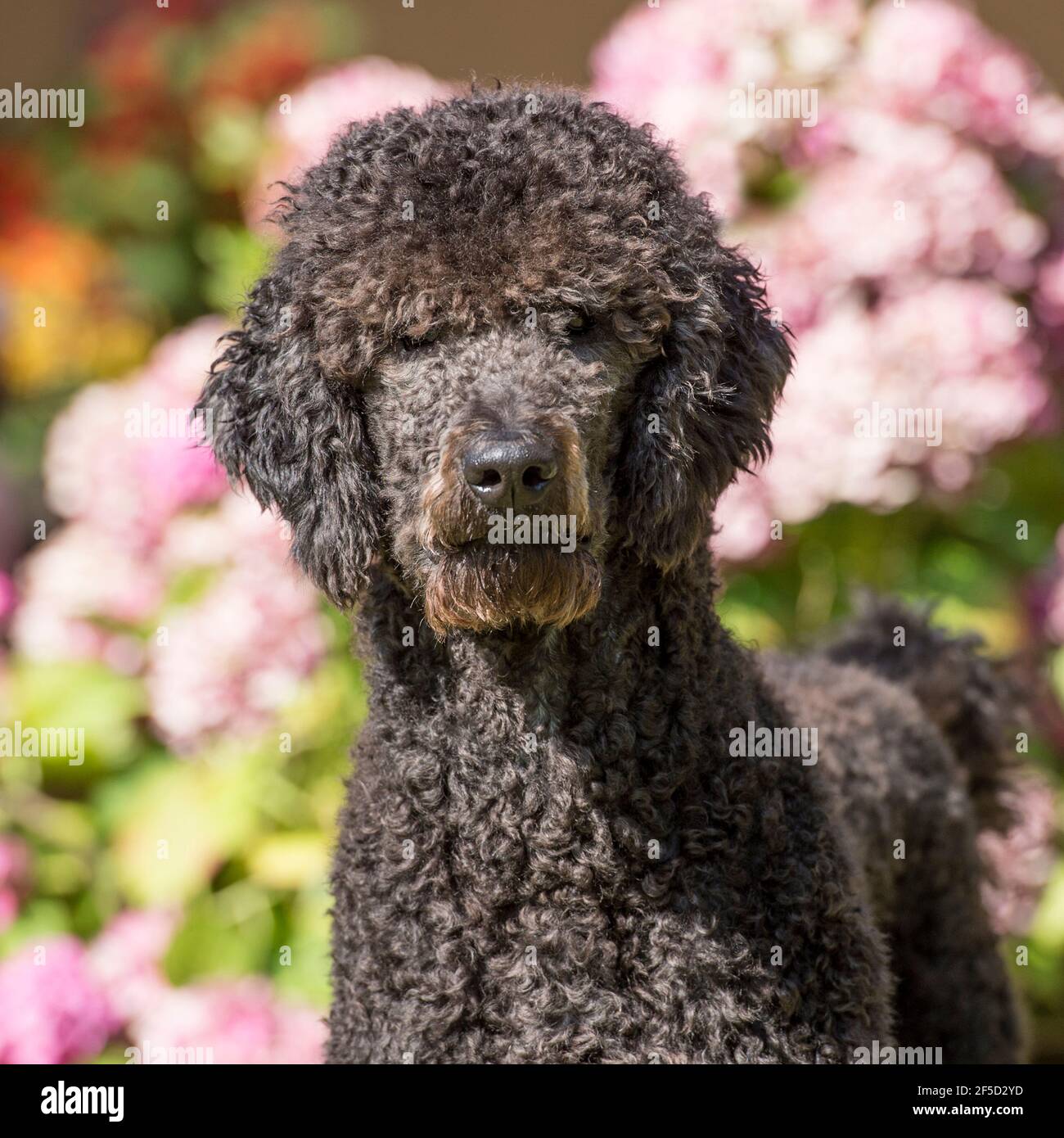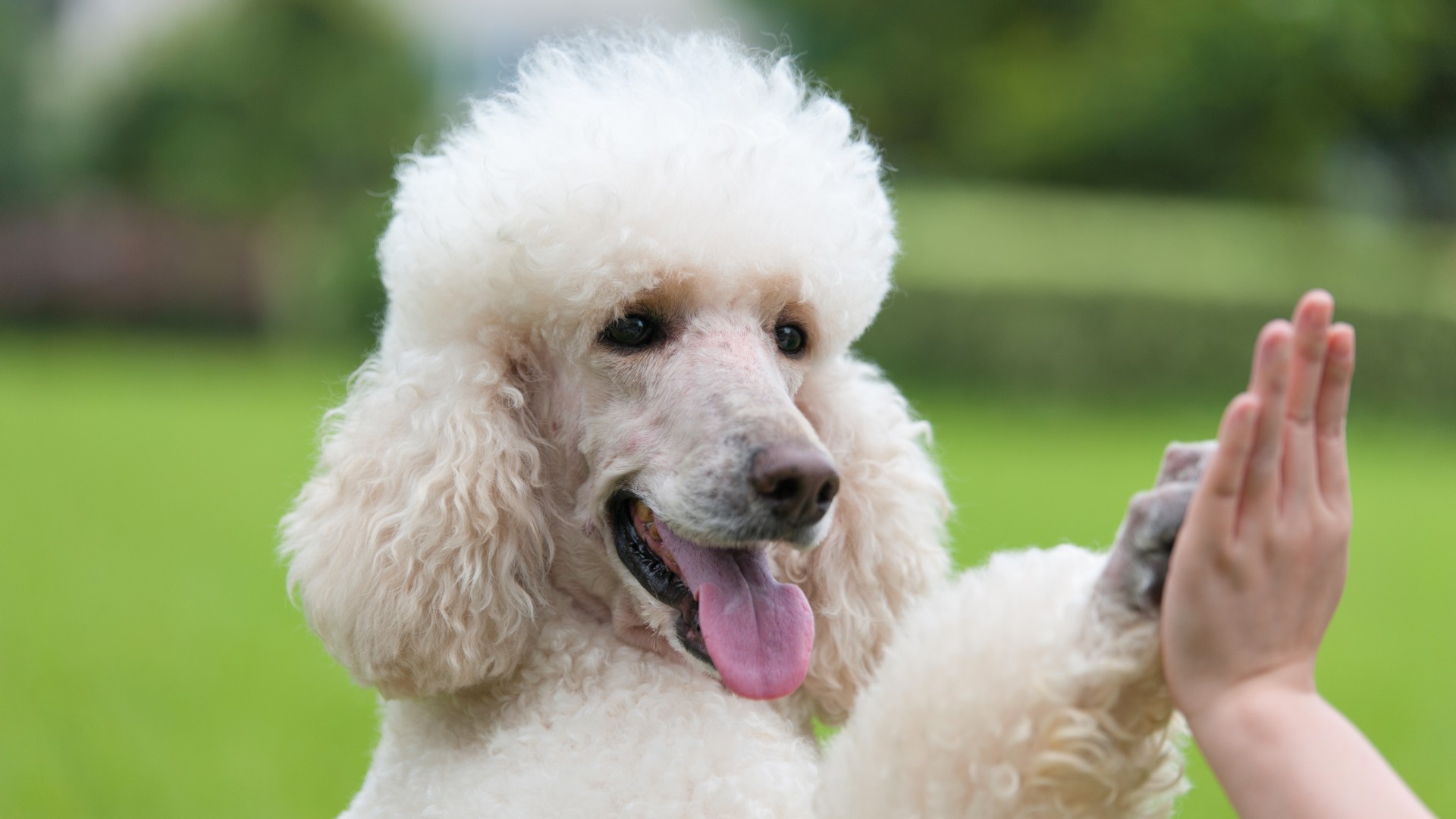It's a pretty interesting thought, isn't it? The idea of a poodle, that elegant dog often seen with a fancy clip, out in the marsh, bringing back ducks. For many, this might seem like something out of a storybook, a bit surprising perhaps. Yet, the truth is, poodles were originally bred for this very purpose, and they are, in fact, incredibly capable water retrievers. This isn't just a quirky trend; it's a return to their roots, a rediscovery of skills some folks have forgotten about.
You know, there's a whole community out there, a forum community dedicated to all poodle owners and enthusiasts, where discussions about breeds, training, and even grooming happen all the time. It's a place where people share experiences, like seeing a "poodle mustache" or wondering about purebred versus mixed poodles on their walks. This kind of shared interest, this love for the breed, often leads to exploring all the wonderful things poodles can do, including their natural talent for retrieving. It's really quite fascinating, you know?
So, if you've ever wondered if your standard poodle, or even thought about getting one, could join you on a duck hunting trip, you're in for a treat. We're going to talk about their history as working dogs, what makes them so good at it, and how you might go about training one for the field. We'll even touch on some community insights and important considerations, like health, that are often discussed among poodle lovers. It's a pretty big topic, so let's get into it.
Table of Contents
- The Poodle's Surprising Past: A True Water Dog
- Why Poodles Excel at Duck Hunting
- Training Your Poodle for Waterfowl Retrieval
- Addressing Common Concerns and Community Insights
- Frequently Asked Questions About Poodle Duck Hunting
The Poodle's Surprising Past: A True Water Dog
When you think of a poodle, your mind might jump to images of show rings and elaborate haircuts, or perhaps that anonymous American photographer's "poodle with bow, on table" from 1850. Yet, the breed's origins are far more rugged, actually. The word "poodle" itself comes from the German word "Pudel," which means "to splash in the water." These dogs were, in fact, developed in Germany centuries ago as water retrievers, specifically for hunting waterfowl. They would plunge into cold water to fetch downed birds, a job that required both a special coat and a keen intelligence.
Their distinctive clips, like the "lion clip," weren't just for looks, you know? They were quite practical. Hunters would shave certain parts of the coat to allow for more freedom of movement in the water, while leaving hair on joints and vital organs to protect them from the cold. So, that seemingly fancy haircut was, in a way, a working uniform. It's a rather interesting bit of history that often gets overlooked, apparently.
Why Poodles Excel at Duck Hunting
So, what makes these dogs, often considered elegant companions, such naturals in the duck blind? It boils down to a combination of their inherent traits, many of which are still very much present in the breed today. They really do have a unique set of qualities that make them stand out, so.
Brains and Brawn: Intelligence and Physicality
Poodles are consistently ranked among the most intelligent dog breeds. This high intelligence means they pick up commands quickly and can understand complex tasks, which is just what you need for a hunting partner. They're not just smart, though; they're also very athletic. Standard poodles, especially, possess a good deal of stamina and a strong, muscular build, perfect for navigating tough terrain and swimming in chilly waters. They're built for action, you know, despite their refined appearance.
The Poodle Coat: A Natural Advantage
That famous curly coat isn't just for show; it's a working coat, actually. It's dense and water-resistant, providing excellent insulation against cold water and harsh weather. This makes them far more comfortable and effective in a duck hunting environment than many other breeds. The texture of their hair, unlike some other breeds, tends to shed less, which is a bonus, though it does mean they need regular grooming to prevent mats. As someone on our forum mentioned, "Mats start when the hair clumps together for any reason," and that's especially true for an active poodle.
Temperament for the Task
Poodles typically have a calm and eager-to-please temperament, which is quite important for a hunting dog. They are generally focused and trainable, able to work closely with their human partners. Their natural retrieving instinct is strong, and they usually love to fetch, which is, you know, the core of duck hunting. They're also quite loyal and form strong bonds with their families, making them excellent companions both in the field and at home. It's a pretty good combination, really.
Training Your Poodle for Waterfowl Retrieval
Training a poodle for duck hunting is a rewarding experience that builds on their natural abilities. It's a process that requires patience and consistency, but the results are often quite impressive. Just like any dog, it's about building a solid foundation, you know.
Starting Early: Puppy Pointers
If you're bringing home a poodle puppy with hunting in mind, starting early is key. Socialization is very important; expose them to different sights, sounds, and environments, including water, in a positive way. Introduce them to fetching games with soft toys, making it a fun and engaging activity. For a standard poodle, finding a good breeder, perhaps someone like Kaylen's Standard Poodles in Florida, whom one of our forum members was asking about, can make a big difference, as they often focus on health and temperament, which are crucial for working dogs. It's something to think about, anyway.
Basic Obedience: The Building Blocks
Before you even think about ducks, a solid foundation in basic obedience is a must. Commands like "sit," "stay," "come," and "heel" are the absolute basics. These commands ensure your dog is responsive and controllable in the field, which is, you know, for their safety and effectiveness. Positive reinforcement methods work best with poodles, as they are intelligent and sensitive. Keep training sessions short, fun, and consistent, more or less.
Water Work and Retrieving Drills
Once basic obedience is solid, you can start introducing more specific training. Begin with retrieving on land, gradually increasing the distance and adding distractions. Then, move to water work. Many poodles naturally love water, but some might need gentle encouragement. Start in shallow, calm water, making it a positive experience with toys they enjoy. Gradually progress to deeper water and more challenging retrieves. Using training dummies that float is very helpful here, as a matter of fact.
Introducing the Field Environment
Familiarizing your poodle with the sounds and sights of a hunting environment is pretty important. This includes the sound of gunshots (starting with very low-level sounds from a distance and gradually increasing volume), the scent of birds, and the presence of decoys. Always make these introductions positive and gradual to avoid any fear or anxiety. It's all about building confidence and comfort in what can be a very busy and loud place, you know.
Addressing Common Concerns and Community Insights
As with any active dog, especially one involved in demanding activities like hunting, there are important considerations for their well-being. Our community discussions often touch on these very points, which is quite helpful.
Health Matters for Active Poodles
Keeping a hunting poodle healthy is, perhaps, the most important thing. This means regular vet check-ups, a balanced diet, and appropriate exercise. There's been a lot of talk, for instance, about health issues, especially with smaller poodles. As one forum member mentioned, "My concern is health issues with a poodle that small," referring to teacup poodles, and another added, "I have read some very negative things about teacup poodles online regarding health issues." While hunting typically involves standard poodles, the underlying message about responsible breeding and health screening is universal. If a bitch is genetically cleared and the sire only has two copies of CDDY/IVDD in his genetics, for example, understanding what the puppies receive is a big part of ensuring healthy offspring. We also hear about things like seizures, like with a friend's adopted standard poodle who had them, so staying on top of health is just crucial, really.
Grooming for the Great Outdoors
While their coat is a benefit for water retrieval, it does require regular care to prevent matting and keep them comfortable. After a day in the field, a thorough rinse to remove mud, burrs, and debris is essential. Regular brushing, perhaps daily, will help prevent mats from forming, which can be quite uncomfortable for the dog. Some hunters opt for a shorter, more practical clip during hunting season to make maintenance easier. It's a balance between protection and practicality, you know.
Choosing the Right Poodle for Hunting
If you're looking for a poodle specifically for hunting, a standard poodle is typically the best choice due to their size, strength, and stamina. When looking for a puppy, seek out breeders who focus on health, temperament, and working lines if possible. Asking about the parents' health clearances and working abilities can give you a good idea of a puppy's potential. It's a big decision, choosing a new family member, especially one you hope to share such a specific activity with. Learning more about poodle training on our site can help, and you can also link to this page for more breed information.
Frequently Asked Questions About Poodle Duck Hunting
Here are some common questions people often ask about poodles and their hunting abilities:
Are Poodles good hunting dogs?
Yes, actually, poodles, especially standard poodles, are very capable hunting dogs. They were originally bred for water retrieving and possess the intelligence, athleticism, and coat type that make them excellent at the job. They are quite versatile, too, and can be trained for various types of hunting.
What kind of hunting can a Poodle do?
Poodles are primarily known for waterfowl retrieving, which is, you know, duck and goose hunting. Their strong swimming ability and water-resistant coat make them ideal for this. However, with proper training, some poodles also excel at upland bird hunting, flushing and retrieving game birds on land. They're pretty adaptable, really.
Do Poodles have a natural retrieving instinct?
Absolutely. Poodles typically have a very strong natural retrieving instinct. They love to carry things in their mouths and bring them back to their people. This inherent desire to fetch is a huge advantage when training them for hunting, as it builds on a behavior they already enjoy, more or less.



Detail Author:
- Name : Mr. Ezra McCullough V
- Username : ogrady
- Email : deshaun.wisozk@koelpin.biz
- Birthdate : 1975-03-15
- Address : 76191 Creola Canyon Suite 005 Emardhaven, PA 10577-8903
- Phone : +1 (970) 851-6922
- Company : Torp, Reinger and Steuber
- Job : Plating Operator OR Coating Machine Operator
- Bio : In voluptas veritatis aut nobis. Autem fuga eius sint qui labore expedita velit qui. Soluta esse voluptas sit officiis.
Socials
facebook:
- url : https://facebook.com/aleenhartmann
- username : aleenhartmann
- bio : Dolores beatae quia vero ut ut. Rerum sapiente debitis et.
- followers : 5768
- following : 1253
linkedin:
- url : https://linkedin.com/in/aleen531
- username : aleen531
- bio : Nobis facilis temporibus eos sint architecto.
- followers : 5886
- following : 2967
instagram:
- url : https://instagram.com/aleen_official
- username : aleen_official
- bio : Molestias quia autem soluta eum deleniti molestias. Quas deleniti veritatis similique earum.
- followers : 5510
- following : 398

